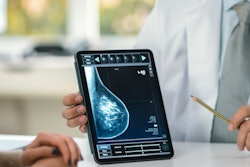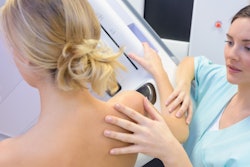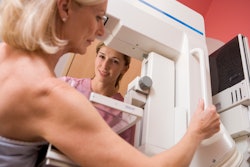Women with food insecurity are less likely to report attending mammography screening, according to research published June 3 in the Journal of the American College of Radiology.
A team led by Jerome Phillip Watts from Howard University in Washington, DC, found in a nationally representative cross-sectional survey that women classified as having low or very low food security were significantly less likely to undergo mammography than women reporting high or marginal food security.
“Understanding social risk factors and addressing social needs can help radiology practices and healthcare systems increase cancer screening among historically underserved patient populations,” Watts and colleagues wrote.
Radiology researchers have explored the potential roles of social determinants of health in breast cancer screening. However, Watts and colleagues noted that there are limited data on how food insecurity could exacerbate health disparities in cancer screening. A 2023 study by University of Tennessee researchers found that food security status impacts women's adherence to breast imaging guidelines.
The researchers evaluated the association between food insecurity and mammographic screening among eligible women with the goal of informing the potential need for interventions.
The study included 8,956 weighted survey responses from women ages 40 to 74 years. The team assessed food insecurity by using the Six-Item Food Security Scale developed by the National Center for Health Statistics. It also estimated the proportion of patients who reported mammographic screening within the last year, stratified by food security.
Of the total respondents, 90.1% were classified as having high or marginal food security. Of these, 56.6% reported undergoing screening. Another 6.1% were classified as low food security, with 42.1% reported screening. Finally, 3.8% of respondents were classified with very low food security, of whom 43.1% reported screening.
On unadjusted analysis, women with low food security (p < 0.001) and very low food security (p < 0.001) were less likely to report screening within the last year. On adjusted analyses, women with food insecurity (p = 0.009) were less likely to report screening.
The study authors highlighted that these findings represent an opportunity to address food insecurity and mammography screening adherence. They added that radiology practices should consider screening patients for food insecurity and other social determinants of health using validated instruments.
“Evidence-based food insecurity interventions may increase adherence to mammography screening,” the authors wrote.
They also highlighted a few resources to address food insecurity, such as FindHelp.org, Feeding America, and the HD Pulse Data Portal, the latter being an offering by the National Institute of Minority Health and Health Disparities.
The study can be found in its entirety here.



















